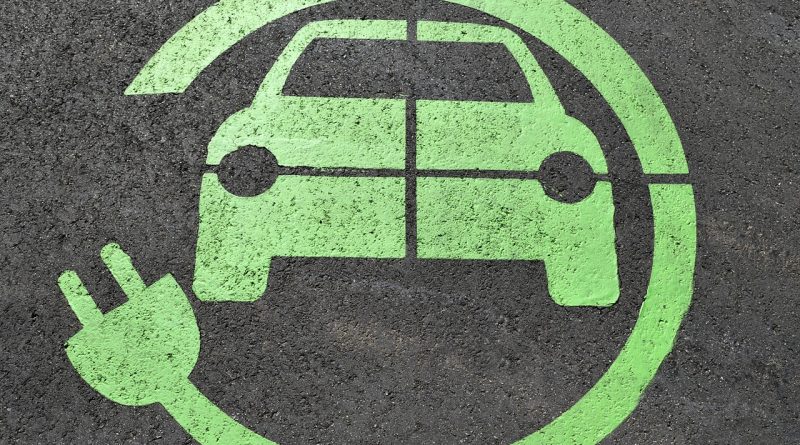Start Of Light Commercial Electric Vehicle Field Testing For Collection / Delivery Operations
Field testing for parcel collection and delivery operations with the use of a prototype light commercial electric vehicle (EV) built by MMC has begun, according to an announcement by Yamato Transport Co., Ltd. (Yamato Transport) and Mitsubishi Motors Corporation (MMC).
1. Background
Yamato Transport is working to reduce environmental burden in all areas of its express home delivery operations through a series of initiatives which include: restricting the size of its delivery vehicle fleet; introducing
low-emission delivery vehicles; promoting eco-friendly driving habits; reducing driving distances and promoting modal shift*. The Yamato Transport fleet comprises around 45,000 vehicles and the company is intent on contributing to the realization of a low-carbon society through the active introduction of next-generation eco-friendly vehicles. (As at the end of March 2010, the fleet included 11,538 low-emission vehicles, of which 4,659 utilize hybrid propulsion systems.)
MMC is the pioneering manufacturer in the field of mass-produced electric vehicles. The company launched the i-MiEV new-generation electric vehicle to the Japanese market in July 2009 targeting corporate, government and local authorities. In April of this year MMC started sales of i-MiEV to individual owners. The EV is the ultimate eco-car because its zero CO2 tailpipe emissions allow it to effectively address such environmental issues as air pollution, global warming and the shift away from oil. By adding a light commercial vehicle to its EV lineup – which, unit for unit, clock longer life-cycle driving distances than passenger cars – MMC is aiming to do its part to quickly make possible a low-carbon society.
Yamato Transport has been studying the use of
commercial EVs which, of all next-generation vehicles, hold high promise for making possible a low-carbon society, and together with MMC, which has been pushing ahead the development and manufacture of electric commercial vehicles, has agreed to work in conducting a program of collection/delivery field tests using a light commercial EV.
*Modal shift: the shifting of road transport to rail and sea in order to reduce traffic congestion and environmental pollution.
2. Field tests
For the purpose of the field tests, the two companies will employ a prototype light commercial EV based on the Minicab market model but powered by the same EV powertrain and components as used by the i-MiEV. The gathering and analysis of a wide range of driving data and information through this program will allow the companies to ascertain the feasibility of using light commercial EVs in collection/delivery operations.
Beginning on October 15, the field tests will be conducted from Yamato Transport’s Higashi Kojiya 1-chome Depot in Ota-ku, Tokyo and will cover collection/delivery operations throughout the Ota-ku region.
3. Future prospects
Yamato Transport views the start of these field tests as a major step in putting more next-generation vehicles on the roads in the transport industry as a whole. The company has already introduced 10 i-MiEV electric cars for the purpose of training drivers in the areas of safety and eco-friendly driving habits. On the basis of the results stemming from the field tests the company will also be looking at the use of light commercial EVs in its collection/delivery operations as part of its drive to make commercial vehicles eco-friendly.
For its part, MMC will feed back the field test results into its product development as it aims to bring a light commercial EV to market as early as possible.
For further information, contact:
Lenore Fletcher, Head of Corporate Communications
Telephone: (08) 8275 2348
E-mail: lfletcher@mmal.com.au
www.mitsubishi-motors.com.au
Caitlin Beale, Manager of Corporate Communications
Telephone: (08) 8275 7250
E-mail: cbeale@mmal.com.au
–ABOUT MITSUBISHI–
Mitsubishi Motors Australia is part of the global Mitsubishi Motors organisation and is fully owned by Mitsubishi, one of the world’s largest companies.
The company’s history dates back to 1870, when Mitsubishi’s Japanese founder, Yataro Iwasaki, started a shipping company with three steamships. The company grew from strength to strength and, in 1914, registered the Mitsubishi three-diamond trademark. This symbol embodies more than 130 years of tradition, and has earned the confidence and trust of customers all over the world.
Mitsubishi takes great pride from knowing that more than 11 million people from around the world have chosen to drive a Mitsubishi vehicle. There are Mitsubishi dealers in more than 200 sites across Australia. These professional and knowledgeable dealers help owners ensure their Mitsubishi car is always looked after by fully-trained Mitsubishi technicians, using genuine Mitsubishi parts that meet stringent global standards.


